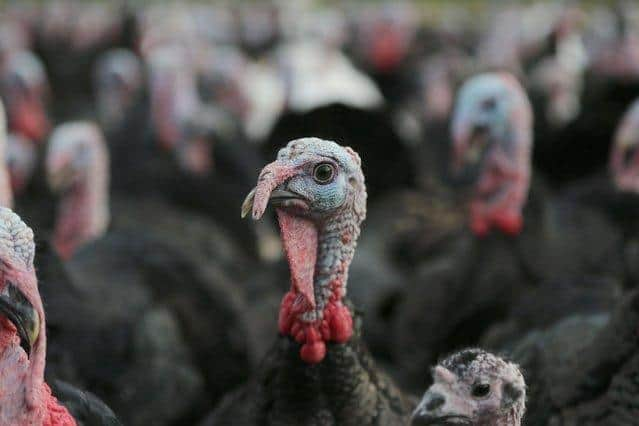Use of 'slaughter on suspcion' at farm during bird flu outbreak condemned
The birds were culled at a poultry farm near Crewe last week and subsequent tests confirmed they had been infected, the Department for Environment, Food and Rural Affairs (Defra) has announced.
The practice, known as slaughter on suspicion, was used in a bid to curb the largest ever outbreak of bird flu in the UK. More than 70 cases have been confirmed so far in England, and North Yorkshire, Lincolnshire and Leicestershire have been identified as hotspot areas.
Advertisement
Hide AdAdvertisement
Hide AdLucinda Douglas, head of CLA North, said the use of this practice “could potentially be hugely detrimental to the poultry industry” and tests should always be conducted before birds are killed.


She added: “We can’t support slaughter on suspicion. If they are going to do that, the producer has to be compensated.
“It’s an unnecessary loss of life and we do not want to see, as an industry, potentially perfectly healthy poultry being destroyed when we don’t need to. It should always be evidence-based.
“If Defra continues with the roll-out of culling on suspicion, where does that leave both the producers and the food supply?”
Advertisement
Hide AdAdvertisement
Hide AdShe also said farmers “do not want to go back to the very dark days” of the foot-and-mouth crisis in 2001, when thousands of animals were killed before they were tested.
A report published by Dr Iain Anderson, following an inquiry into the devastating outbreak, heard between 90 and 95 per cent of sheep slaughtered on suspicion subsequently tested negative for the disease.
In a statement, Defra said: “Following suspicion of notifiable avian influenza based on the clinical picture in commercial poultry at a premises near Crewe, Cheshire East, Cheshire, a case of slaughter on suspicion was confirmed on January 21, 2022.
“Following official testing, highly pathogenic avian influenza (HPAI) H5N1 was confirmed on January 22. A 3km Protection Zone and 10km Surveillance Zone has been put in place around the premises.
Advertisement
Hide AdAdvertisement
Hide Ad“All birds on the infected premises will be humanely culled.”
The UK is currently covered by these zones, which require bird keepers to take measures to try and stop the disease’s spread, such as housing or netting all poultry and captive birds to keep them separate from wild birds, and disinfecting clothing and equipment.
Health experts say the disease is being spread by wild birds from Europe, through direct contact and faeces, and the migratory season for those birds is not due to end until March.
However, the risk to human health is deemed to be very low.
Advertisement
Hide AdAdvertisement
Hide AdA woman in the South-West of England tested positive for bird flu earlier this month but the UK Health Security Agency (UKHSA) said she had been in “very close, regular contact with a large number of infected birds” and transmission to humans is “very rare”.
The Animal and Plant Health Agency (APHA) has criticised poultry farmers with large flocks of birds for failing to implement effective biosecurity.
Speaking last month, Andy Paterson, head of intervention epidemiology at APHA, said farms across the country have been found with poorly maintained facilities and “incomplete or inconsistent” infection control procedures.
